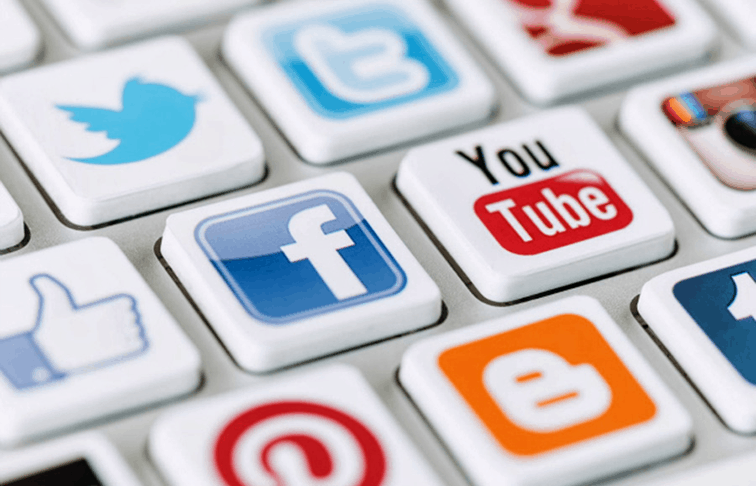The study of social media and mental health is complex and constantly evolving. In 2021, over 4.26 billion people worldwide classified themselves as active social media users (Social Media Fact Sheet, 2021). This figure includes approximately 70 percent of American adults.
Social media, for many of its users, provides a means of communication with family, friends, colleagues and other individuals and groups. For others, it offers a sense of community that they lack in their daily lives. This gives some individuals a means of connection and approval.
Social media and mental health: Positives and negatives
While these are positive benefits, social media can also have negative effects on mental health and well-being. Because social media provides the opportunity for users to express approval of images, comments and posts, scholars who have been studying the effects of social media have determined social media use may be closely related to self-esteem (Isaranon, 2019). Excessive time on social media has been shown to increase incidences of anxiety, depression, low self-esteem, eating disorders, sleep disorders and victimization (Isaranon, 2019).
Recommended course: In-Patient Management of Anxiety and Depression
Positive effects of social media use on mental health include, but not limited to, the following:
- Social support: Social media platforms can provide a sense of community and support, especially for individuals who may have limited offline social connections (Primack, Shensa, Sidani, Whaite, Lin, Rosen & Miller, 2017).
- Information sharing: Social media can be a valuable source of health information and support groups for individuals dealing with specific health conditions (Moorhead, Hazlett, Harrison, Carroll, Irwin & Hoving, 2013).
- Reducing isolation: For some, social media can reduce feelings of isolation and loneliness, particularly in situations where physical interactions are limited (Bessiere, Kiesler, Kraut & Boneva, 2008).
Negative effects of social media use include, but not limited to, the following:
- Social comparison: Constant exposure to carefully curated and often idealized portrayals of others’ lives on social media can lead to negative self-comparisons. These potentially contribute to feelings of inadequacy and depression (Fardouly, Diedrichs, Vartanian & Halliwell, 2015).
- Cyberbullying: Online harassment and cyberbullying can lead to significant psychological distress (Kowalski, Giumetti, Schroeder & Lattanner, 2014).
- Addictive behavior: Excessive use of social media, particularly among young people, has been associated with addiction-like behaviors and negative mental health outcomes (Andreassen, Pallesen & Griffiths, 2017).
Social media, mental health, and teenagers
Danah Boyd (2014), social media scholar, has spent considerable time among teenagers, studying their use of social media. Boyd found that American teens have found their sense of community on social media and consider this as an essential part of their lives and their connection to friends and acquaintances.
Teenagers also use social media to track celebrities. However, celebrity-friending, following and sharing creates negative comparisons between teenagers and the ideal images presented by celebrities through their social media pages (Boyd, 2014).
A case study in social media use
In a 2014 study that compared American and Korean students, Lee, Lee, Choi, Kim and Han found that the use of social media is negatively related to body satisfaction. Individuals with poor body image may contract eating disorders and/or become obsessive about their appearance and may feel pressured, through social media, to live up to accepted standards and compare themselves to one another (Lee, et al., 2014).
The relationship between social media and mental health is complex, with both positive and negative aspects. The impact of social media on an individual’s mental health is influenced by various factors, including individual differences, usage patterns, and the broader social and cultural context. Ongoing research is essential to continue exploring this relationship and to develop strategies for promoting positive online experiences and mental well-being.
References
- Andreassen, C.S., Pallesen, S. & Griffiths, M.D. (2017). The relationship between addictive use of social media, narcissism, and self-esteem; Findings from a large national survey. Addictive Behaviors, 64, 287-293. DOI: 10.1016/j.addbeh.2016.03.006.
- Bessiere, K., Kiesler, S., Kraut, R. & Boneva, B.S. (2008). Effects of internet use and social resources on changes in depression. Information, Communication & Society, 11(1), 47-70. DOI: 10.1080/13691180701858851.
- Boyd, D. (2014). It’s complicated: The social lives of networked teens. Yale University Press.
- Fardouly, J., Diedrichs, P.C., Vartanian, L.R. & Halliwell, E. (2015). Body Image, 13, 38-45. DOI: 10.1016/j.bodyim.2014.12.002.
- Isaranon, Y. (2019). The role of Facebook affirmation towards ideal self-image and self-esteem. International Journal of Behavioral Science, 14(1), 46-62.
- Kowalski, R.M., Giumetti, G.W., Schroeder, A.N. & Lattanner, M.R. (2014). Bullying in the digital age: A critical review and meta-analysis of cyberbullying research among youth. Psychological Bulletin, 140(4), 1073-1137.
- Lee, H.R., Lee, H.E., Choi, J., Kim, J.H. & Han, H.L. (2014). Social media use, body image and psychological well-being: A cross cultural comparison of Korea and the United States. Journal of Health Communication, 19(12), 1343-1358.
- Moorhead, S.A., Hazlett, D.E., Harrison, L., Carroll, J.K., Irwin, A. & Hoving, C. (2013). A new dimension of health care systematic review of the uses, benefits and limitations of social media for health communication. Journal of Medical Internet Research, 15(4), e85
- Primack, B.A., Shensa, A., Sidani, J.E., Whaite, E.O., Lin, L.Y., Rosen, D. & Miller, E. (2017). Social media use and perceived social isolation among young adults in the U.S. American Journal of Preventive Medicine, 12(8), 1-8. DOI: 10.1016/j.amepre.2017.01.010.
- “Social Media Fact Sheet” (2021). Pew Research Center. www.pewresearch.org/internet/fact-sheet/social/media. Accessed 30 Oct. 2023.





